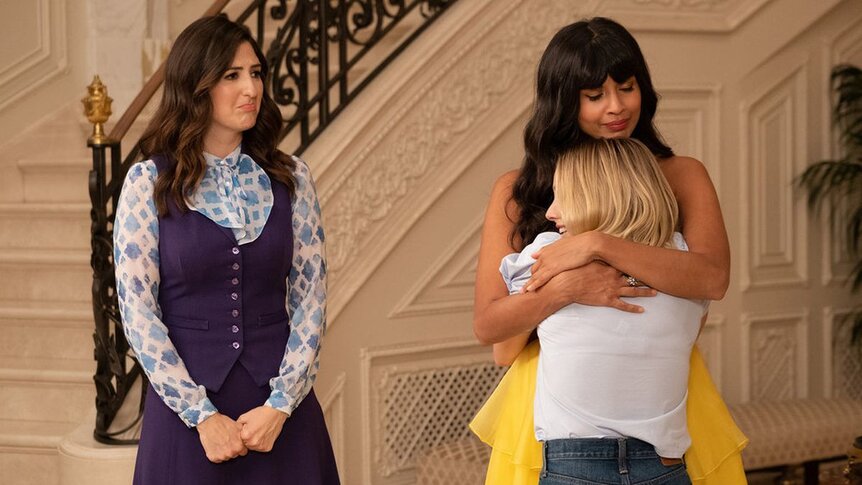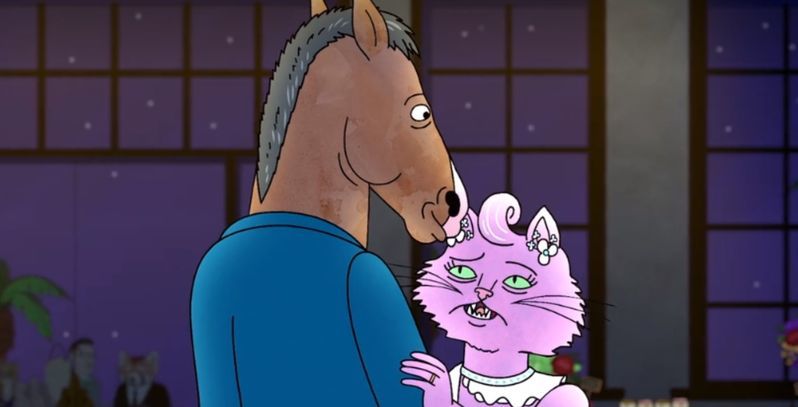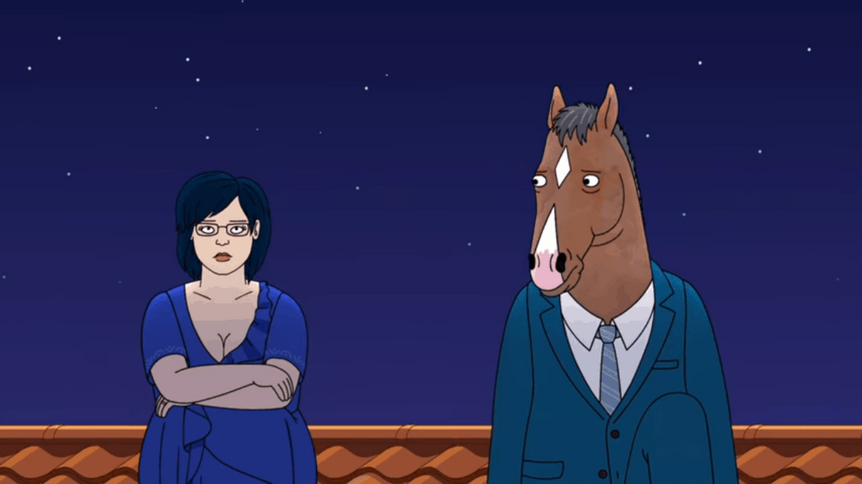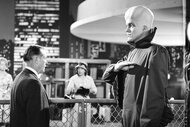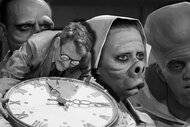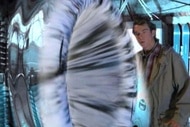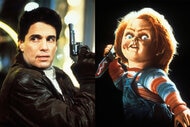Create a free profile to get unlimited access to exclusive videos, sweepstakes, and more!
The Good Place, BoJack Horseman, and the perfect character arc
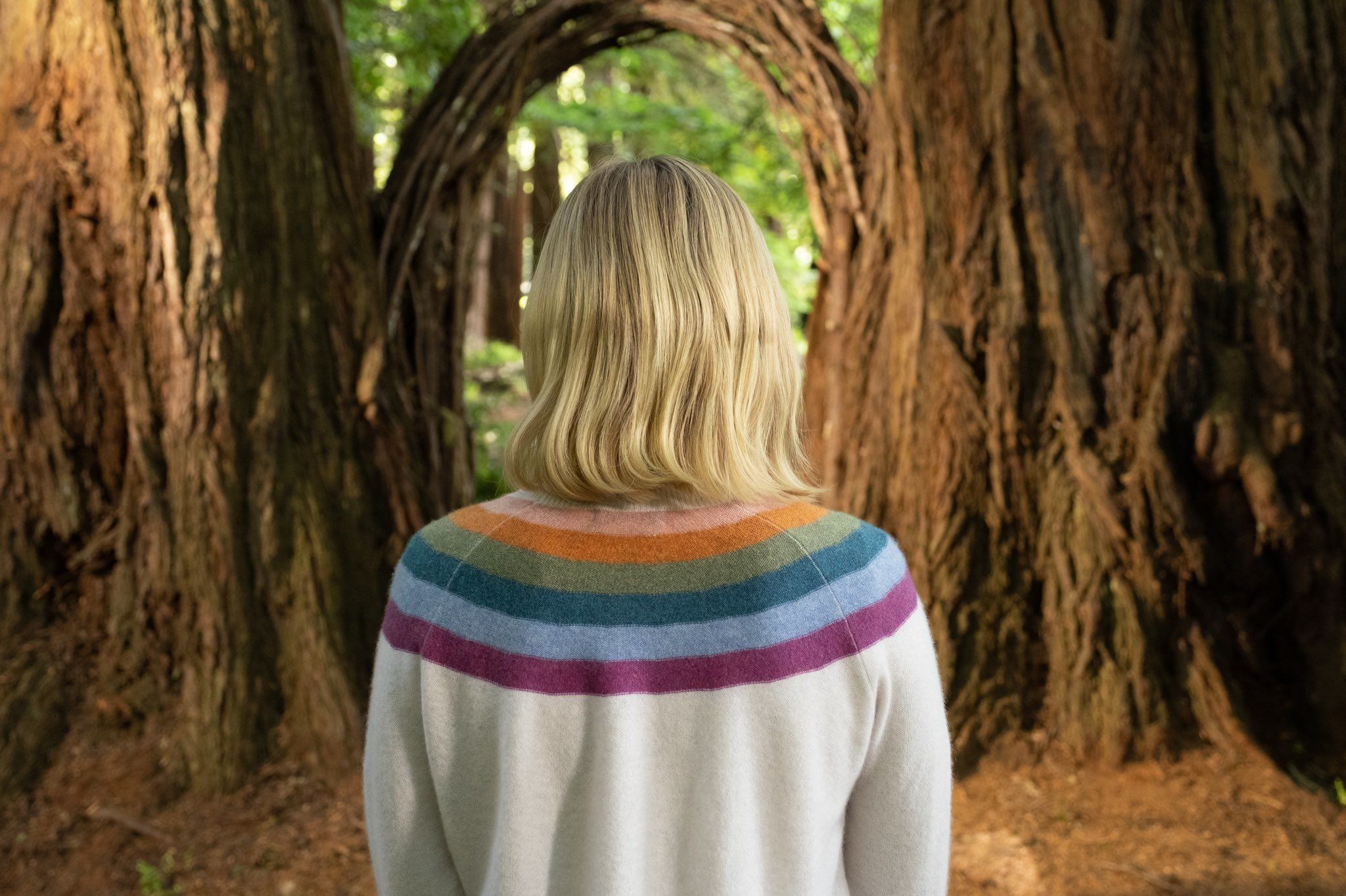
Ending something is hard. It’s one thing to chart an early course, but having a firm enough grasp on the wheel to steer the ship into a final harbor takes a special skill. With that in mind, the series finales of The Good Place and BoJack Horseman feel like small miracles. While each show had its minor stumbles, both managed to stick the landing in a very important way: They felt earned and they felt right. We’ve gotten to know these characters over the years, and the way that their arcs were wrapped up felt natural. A little sad, yes, but fitting. It is becoming increasingly common for out-of-character behavior to serve plot points in the name of surprise and being subversive, but writers and showrunners should look to these two finales as a gold standard in character arcs and storytelling.
The Good Place has had a bold message since Episode 1: People are at the very least trying to be good. Yes, there are exceptions to the rule, but The Good Place argued that when given the right tools and the right environment, people will usually bend towards self-improvement. In lesser hands, this could have ended up being a maudlin mess of platitudes. However, The Good Place usually found the balance somewhere in the dot over the "i" in Jeremy Bearimy.
Warning: Spoilers within for the series finales of The Good Place and BoJack Horseman.
With something as high concept as The Good Place, it made sense that it ran out of steam for a lot of the final season. Separating Chidi from the core group felt like a misstep and a few of the fixes on their quest to make the Good Place more accessible were a little too convenient. That being said, the way that the show handled where the main characters ended up was pretty flawless and showed what they had learned. Truly, the real Good Place genuinely was the friends they made along the way. The Good Place wasn’t even the final stop for this crew, who realized that an endless lifetime (deathtime?) in paradise wasn’t paradise at all. The undercurrent of sadness that all things must eventually end is what makes things so wonderful while they’re happening, so they fixed the fatal flaw of their version of heaven by giving you the option to leave when you’re ready. What’s beyond the Good Place isn’t clear, but how each character rises up to meet that beyond is a triumph.
For Michael and Janet, they got to taste the humanity that had always been out of reach for them. Our favorite former demon got to go to earth as an actual man and live out the banal but wonderful mortality he had always craved. Janet, the best not-a-girl that anyone could ask for, got to feel feelings (her weird romance with Jason was sweet to the end) while also ensuring that humanity would get their best shot at making it to the best possible version of the afterlife. Considering that their stories began with them working for the Bad Place, this is a rather remarkable end.
The four humans from the original experiment also ended exactly as they should have, but in rather unexpected ways. Jason is the obvious choice for being the first to choose to leave the Good Place and rejoin the universe beyond, with his short attention span and often short-sighted goals. However, he wants to see Janet one last time, so he ends up waiting around in the final forest by the doorway to whatever is beyond the Good Place for a literal age, just being quiet like the monk he once pretended to be. For Tahani, she reconciles with her parents and finds true purpose as a neighborhood architect, two things that eluded her on Earth. Chidi finds love with Eleanor and finally learns how to be decisive after ruining his mortal life with his inability to make even the simplest choice. He knows when it’s time to leave, and that’s when he finds the time to read Dan Brown. He’s lived a thousand good lifetimes with Eleanor, and he is truly content.
While The Good Place is definitely an ensemble, Eleanor has always been at the center of it, so it makes sense that she is the last to leave and the one who has the hardest time saying goodbye. A self-proclaimed Arizona trash bag, Eleanor is a perfect example of being a product of your environment, which makes her desire to change and improve even more powerful. Eleanor was a self-interested loner as a human, but she was given the chance to save herself through education and relationships. Everyone has different types of companionship that they’re looking for, but no one is meant to be truly alone. Eleanor may have talked herself into believing that she preferred things that way, but when she realizes what the alternative is, she decides that trying is worth it. That being unselfish is worth it. When she makes the leap into the unknown, she has loved well and been loved well, and who could hope for more? There were no easy answers at the end of The Good Place, but everyone got where they needed and deserved to be.
BoJack Horseman, while quite a bit darker than a sunny supernatural sitcom, has a similar ethos: It’s worth it to try. Yes, you will fail, because of your own flaws and because the sh*t the world hurls at you, but you can still do the right thing. The right thing doesn’t always (and doesn’t usually) mean the happiest outcome and can even bring boatloads of pain, but that doesn’t make it less worthwhile. The arcs in BoJack are a little less tidy than The Good Place, but it was always that kind of show. We see Diane find out who she really is through a lot of self-reflection and self-loathing, but the woman at the end of the series has found a little peace. She may not be the “serious” writer that she set out to be, but adolescent mystery novels have value too, and Diane knows that now. Princess Carolyn has always felt the pull between building a career and having a family, and in the end, she gets both. It’s certainly more complicated and exhausting than she anticipated, but she makes it work. And Todd, sweet Todd, lets go of his familial expectations and accepts that not everyone’s version of success in relationships and career ambition is the same. He’ll always be a little offbeat, and that’s fine.
And then there’s BoJack. BoJack is a complicated figure because, while he is our protagonist and therefore someone whose success we somewhat root for, he has done awful things. Awful things. This isn’t a morally gray anti-hero who ultimately does the right thing when the stakes are highest. At his core, he’s a malignant narcissist who preys on vulnerable women and for years refuses to accept consequences. BoJack tries, BoJack fails, BoJack pays lip service to change, rinse, repeat.
In the penultimate episode of the series, BoJack is drowning in his old swimming pool after breaking in and ODing. His seemingly dying mind is coping with the trauma by having a macabre dinner and show with the significant people in his life who have died, leading viewers to think that BoJack’s end really will be in the ground. But that would have been an “easy” out for the character. In death, BoJack never would have actually faced consequences for his actions. Serving time for the B&E (but really for... a lot of things) is the only way it could have ended for him.
While he’s on leave from prison to attend Princess Carolyn’s wedding, BoJack tells Todd that he’s worried about relapsing after he leaves the confined routine of jail. Todd tells him, both matter-of-factly and with compassion, “Then you’ll get sober again.” The point of Bojack Horseman is the inevitability of falling short. But that doesn’t mean you shouldn’t try. Consequences will come — the likelihood of Bojack reconciling with Hollyhock is slim and his relationships with Todd and Diane will never be as close as they once were — but that’s life. You can still strive towards being a better you.
There are certain deals that creators make with their consumers, and maybe the most important one is satisfaction if they stick around. This doesn’t mean that everyone gets a fairytale ending or fan-service is delivered at every turn. Giving the fans exactly what they seem to want is oftentimes the wrong answer. But a character arc that makes narrative sense in the universe of the story is one of the greatest things that media can deliver. It doesn’t have to be happy, it just needs to feel true.
